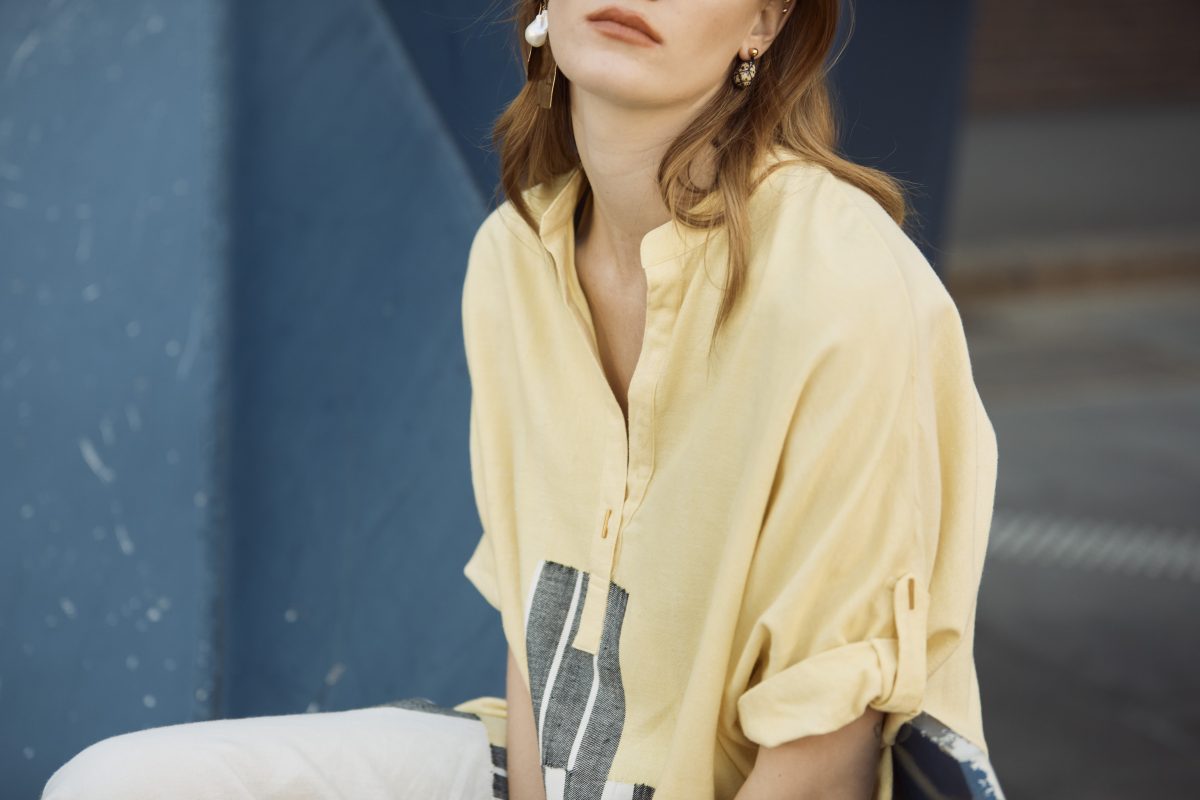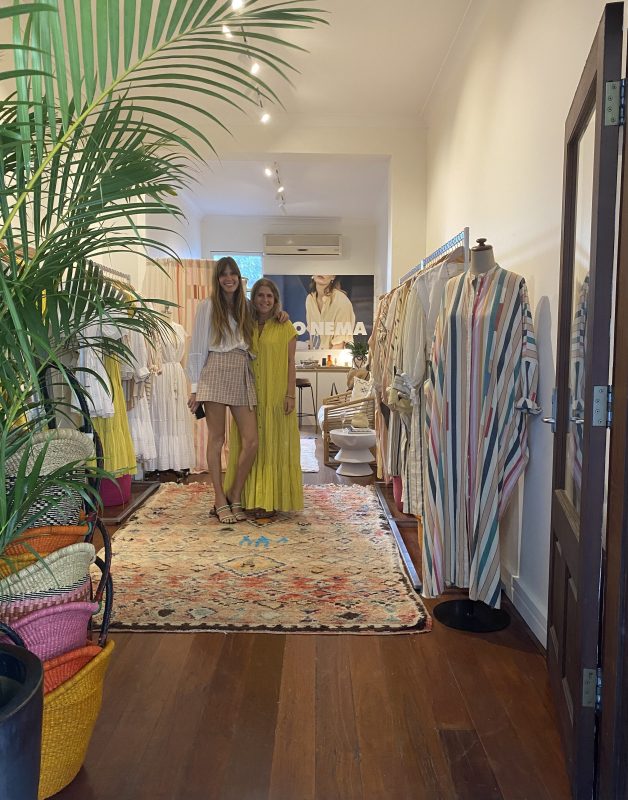ILIO NEMA is a new Australian label with a mission: to counter trend-driven consumption by reintroducing timeless and traditional craftsmanship into modern life.

Ilio Nema (pronounced Il-yo – Ne-ma) is a Greek word, translating to “sun thread”. This circular label draws inspiration from Hellenic culture to communicate its unique aesthetic.
Each Ilio Nema piece is one-of-a-kind, in collaboration with artisanal communities in Morocco and India. Each design reflects an appreciation for both traditional skills and modern style.
The label’s unique aesthetic finds definition in its hand-loomed stripe fabrics. The collection also includes ‘remnant fabrics,’ which are otherwise destined for landfill. This philosophy rejects the traditional fashion business model of design and demand, instead seeking to partner with suppliers in a collaborative and inclusive way.
In keeping with this approach, the focus is on producing pieces that can be worn year after year, season after season. This stunning, sustainable label comes from Ariane Leondaridis and Katia Kelso. Ilio Nema is hosting opening a pop-up store in Sydney. It is running now, until Christmas. Visit it at 271 Goulburn St, Surry Hills.
We chat to Leondaridis and Kelso about their circular fashion label and what’s next for their brand….

How did you first become interested in fashion?
Ariane – When I was 18, I modelled for Martin Margiela. I was absolutely obsessed with him and the brand, and he showed me the creative, artist side of fashion. After that, I went to fashion school and started interning at Martin Margiela, which is where I got my first job!
Katia – I always loved sewing as a child and I used to make my own dresses from vintage fabrics to wear out on the weekends. From there I studied fashion at UTS.
How did the two of you meet?
We met in New York, while we were working together as Design Director and Production Director. There we discovered our shared passion for artisanal craft.
What does circular fashion mean to you?
The circular economy is where objects are continuously circulated/reused/repurposed rather than ending up in landfill. In keeping with this approach, our focus is on producing pieces that can be worn season after season, year after year.
We create designs of permanent beauty and want to encourage our customers to have an appreciation for enduring elegance and flawless style. Our trend is ephemeral but styled with a conscience reflecting ethical and sustainable luxury.
How does the creative process work? Do you design the pieces yourselves?
Overall, our creative process is driven by the fabric, we start with textile ideas, colour palettes and motifs. Most of this is driven by our environment, the art we are exposed to, the music we listen to, or the places we visit….
From there we start developing swatches on small looms with our weavers trying the different textures and colours, together. We usually design the shapes once we feel happy with the fabrics. After this, the magic happens with the fittings, seeing the pieces on then we make decisions. We spend a lot of time thinking about the functionality of the pieces.
Tell me a bit about your brand’s philosophy:
At Ilio Nema, we practice what we preach, living the way we produce our garments to minimise our impact on the environment. We are vigilant about our practices- from fabric choices to small runs to avoid waste, the use of fabric scraps as packaging to reduce plastic and carbon offset, we are committed to our vision
How has Covid impacted your work process?
We initially created the brand around travelling and thought we would be visiting our factories and travelling the world to discover new crafts and artisanal makers to drive our collections forward.
Covid has stopped us from travelling and forced us to do everything from our computers, instead of face to face. We have missed the interaction with our weavers and makers, visiting markets and vintage dealers for sourcing.
Creatively it is not as fun! We cannot wait to go back to India and Morocco.
What advice would you give to designers looking to make their way into the industry?
Stay true to yourself and do what you are good at. Focus on finding your niche.
Also, be kind to everybody you work with, it is a small industry, and you never know where people will end up in 10 years, so make a good impression.
What do you think the main issue facing the fashion industry is?
The impact of waste on the environment. The fashion and textiles industries are major polluters at all stages of the production chain and are responsible for 10% of annual global carbon emissions. Our unwavering responsibility as a brand is to ensure our planet and its people are not misused.
Who, or what, is your biggest inspiration?
Our Greek heritage and Greek mythology are an endless source of stories, magic, and philosophy.
We are also greatly inspired by our travels to faraway places- Mexico, Morocco, Greece, Italy, Portugal, India and more.
How would you describe your brand?
Sophisticated yet easy clothing, with exquisite artisanship. Our range is unique, effortless, and versatile, featuring pieces that can be worn from the beach to the dinner table, from the sun deck to the high-end restaurant.
What is your most regretful personal fashion phase?
Ariane- My Gwen Stefani No Doubt period. Where I wore a kilt mini skirt with a crop top, had my belly pierced and chains around my waist! Do not forget the bindi!
Where do you see your brand in the future?
We would love the brand to become a staple for women looking to invest in beautiful, sustainable, and artisanal clothing. As we grow, we are excited to expand into jewellery and leather goods.
We are also hoping the brand can give back to the artisans, who make the clothes, giving support to the artisanal communities, helping to keep the crafts and cottage industries alive.
Subscribe to FIB’s Weekly Breaking News Report for your weekly dose of music, fashion and pop culture news!






